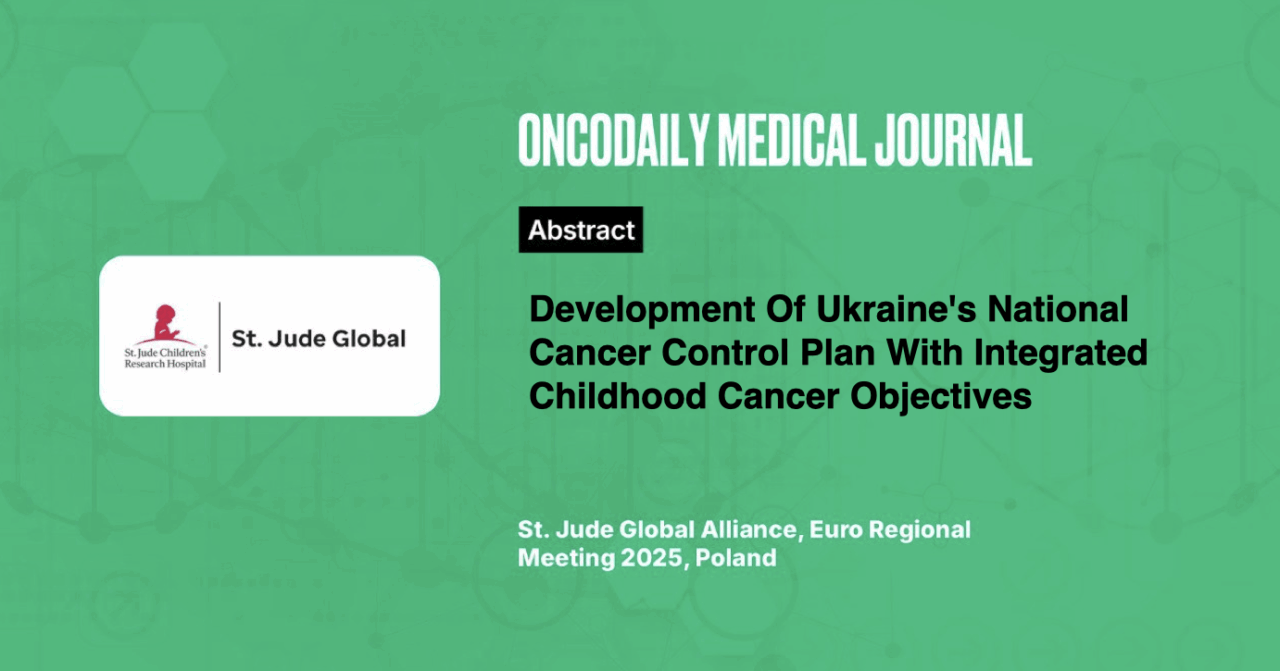Development Of Ukraine’s National Cancer Control Plan With Integrated Childhood Cancer Objectives
Abstract
Introduction: Since 2016, Ukraine lacked a National Cancer Control Plan (NCCP). Previous editions did not recognize children with cancer and their families as a distinct beneficiary group with specific needs. To develop an NCCP addressing the unique needs of children with cancer, emphasizing the centralization of care in specialized centers of excellence.
Methodology: In 2019, the Ministry of Health (MOH) of Ukraine established an NCCP working group comprising representatives from the MOH, hospital administrations, clinicians, and civil society organizations (CSOs). Tabletochki, the sole childhood cancer CSO, represented children with cancer and their families. The development process, lasting five years, was disrupted by the COVID-19 pandemic and the full-scale Russian invasion. The NCCP utilized insights from previous studies, such as St. Jude Global’s capacity mapping and the C5 tool, as well as WHO cancer mission recommendations.
Results: In August 2024, the NCCP-2030 and Operational Plan-2025 were approved. For the first time, childhood cancer was recognized as a distinct domain with specific goals. The NCCP promotes the centralization of childhood cancer care through a network of specialized reference centers. Key strategic objectives include establishing pediatric oncology fellowships, streamlining patient pathways, developing medical standards and clinical guidelines, and implementing e-systems for data collection and analysis.
Conclusion: Involving childhood cancer CSOs in NCCP development is crucial for addressing the needs of this vulnerable group. Their participation ensures recognition of specific challenges and goals. Childhood cancer CSOs in other countries can advocate for their agendas by joining NCCP working groups and leveraging evidence from collaborative projects with authoritative partners such as St. Jude Global, WHO, SIOP, and CCI.





